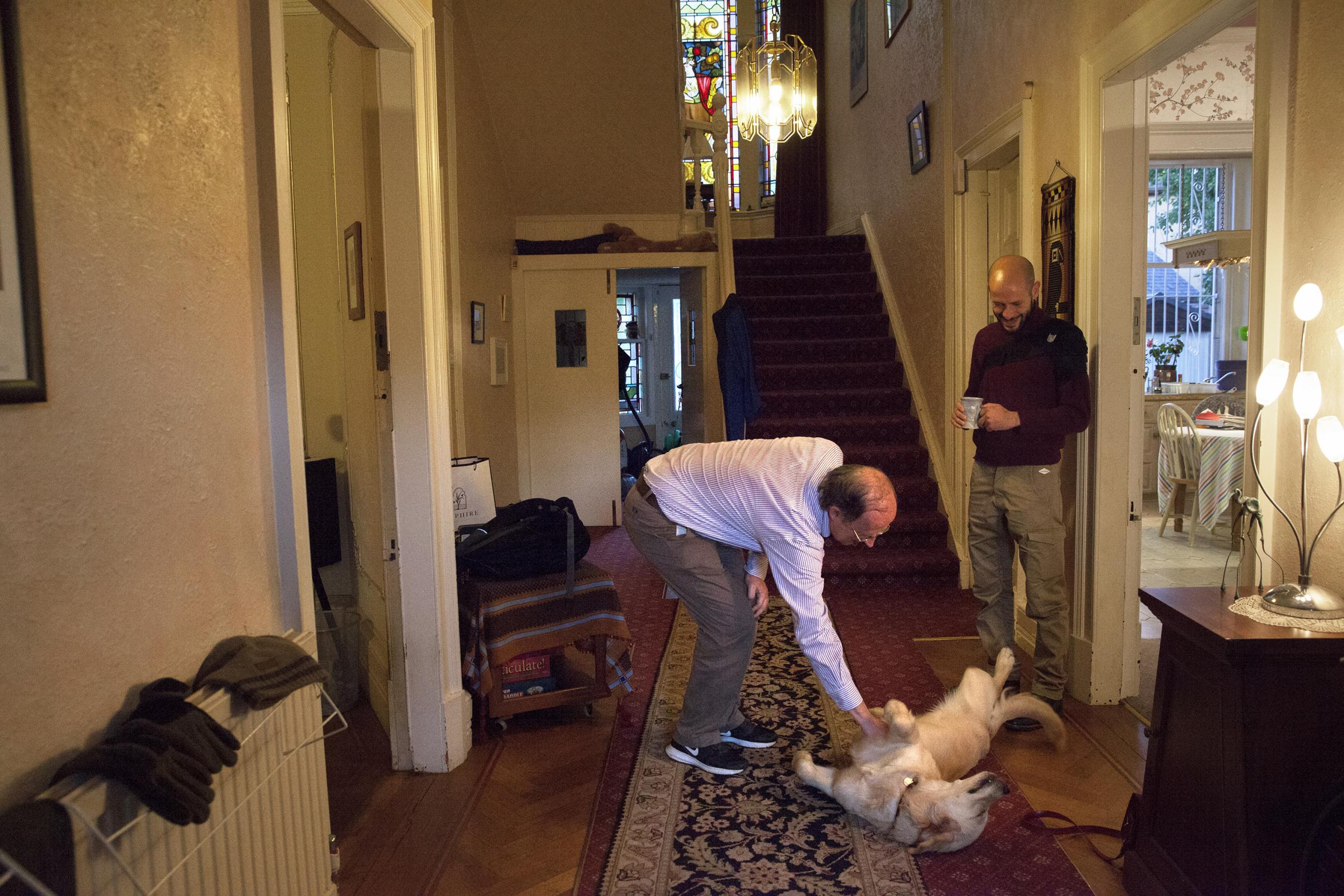We are giving a Syrian refugee a home this Christmas
We share food, photos and a love of kilts - Hamza is a welcome addition to our Scottish festivities

Your support helps us to tell the story
From reproductive rights to climate change to Big Tech, The Independent is on the ground when the story is developing. Whether it's investigating the financials of Elon Musk's pro-Trump PAC or producing our latest documentary, 'The A Word', which shines a light on the American women fighting for reproductive rights, we know how important it is to parse out the facts from the messaging.
At such a critical moment in US history, we need reporters on the ground. Your donation allows us to keep sending journalists to speak to both sides of the story.
The Independent is trusted by Americans across the entire political spectrum. And unlike many other quality news outlets, we choose not to lock Americans out of our reporting and analysis with paywalls. We believe quality journalism should be available to everyone, paid for by those who can afford it.
Your support makes all the difference.It has been a long time since I had a new housemate. Like any new friendship, we’ve been spending time getting to know one another, sharing photos of our families. I proudly showed our new guest the photos of my son’s wedding with many guests in traditional Scottish outfits, standing looking out over Loch Lomond on a beautiful sunny August afternoon. “That” he asked, pointing, “What its name?”, “That’s a kilt,” I replied. “Yes, I saw for £49 in sale,” he said. “When I have money, I will buy.” He seemed disappointed when I pointed out that that was the cost of hire, for a day. “Then I ask my mother to make,” he said. “I want to wear it.” Hamza, our new housemate, a refugee from Syria, loves Scotland.
When friends and family hear that we host refugees the reaction is often: “Wow, that’s brave! I couldn’t take in a stranger like that”. The reality has been that it has been surprisingly easy.
Our first guest arrived within three days, a Syrian man who had lost his entire family when a bomb hit the family home, but who had been turned down for asylum because his “accent sounded Algerian”. A short stay with us gave him the breathing space he needed to organise a room with a friend and we are hopeful that his appeal to be granted asylum will be successful.
Our second guest, Hamza, arrived a couple of weeks later, having struggled to cope at the Glasgow Destitution Network’s Night Shelter, because of sleeping problems caused by the traumas he had experienced. Some ten weeks later he is still with us and looking forward to celebrating Christmas with us.
Sure, we don’t know these people before they arrive and our first two guests have been Muslims, unlike us. We knew dietary requirements had to be taken into account, which is no great challenge. We live in a cosmopolitan area so local shops can supply halal meat; fish and vegetarian food are acceptable and we avoid cooking with alcohol, which is hardly a sacrifice. Our guests have accepted that we might sit down to dinner with a glass of wine while they enjoy a soft drink. We are quite easy going so attendance at meals is “as and when you like”. Food is always available in the kitchen so no-one will go hungry.
The extensive media coverage of the refugee crisis troubled me so much. Part of my disquiet was a sense of guilt because I “had it so good”. I am a comfortably off, retired doctor, whose kids were away to university and had lots of space at home, rooms that sat empty for most of the year while these refugee families often had nothing.
These thoughts led me to the website of a charity Positive Action in Housing, and for the first time I appreciated that there were, already, refugees in the UK with no “official” source of financial support – no homes or housing benefit and no money for food. So I signed up to offer someone a place to stay, for an indefinite period, as needed.
Little by little our current “stranger” has become a friend. We discuss aspirations and disappointments, challenges and successes. We laugh together. I learn about his country, the good and the bad, and he learns about Scotland and the vagaries of the English language which I rather struggle to explain or justify. We occasionally discuss religion - to achieve mutual understanding.
I have gained lots from these exchanges. I have a better understanding of what might drive people from their homeland and make it difficult for them to return. I appreciate even more, the “luck of the draw” that placed me and my family in Britain.
When we sit down to Christmas dinner together he will feel part of our family and will know everyone around the table. His presents, like those of the rest of the family, are under the tree.
Rooms for Refugees is a programme ran by Positive Action in Housing, if you would like to register as a host please click here or if you would like to donate to the programme please click here